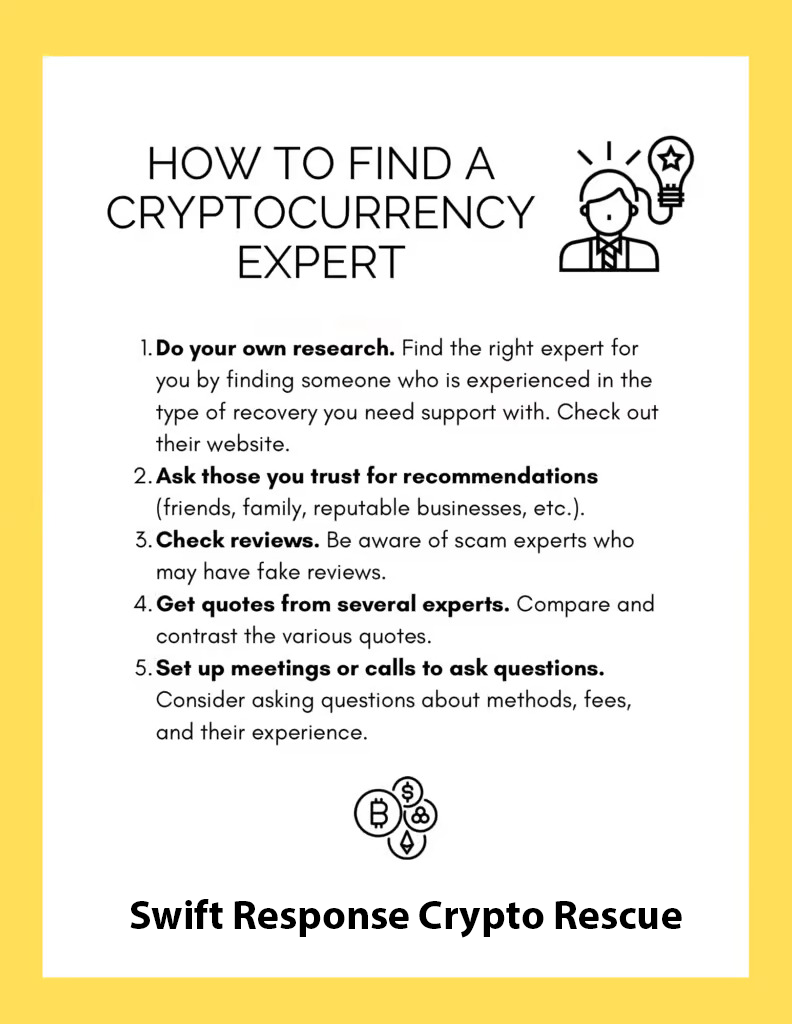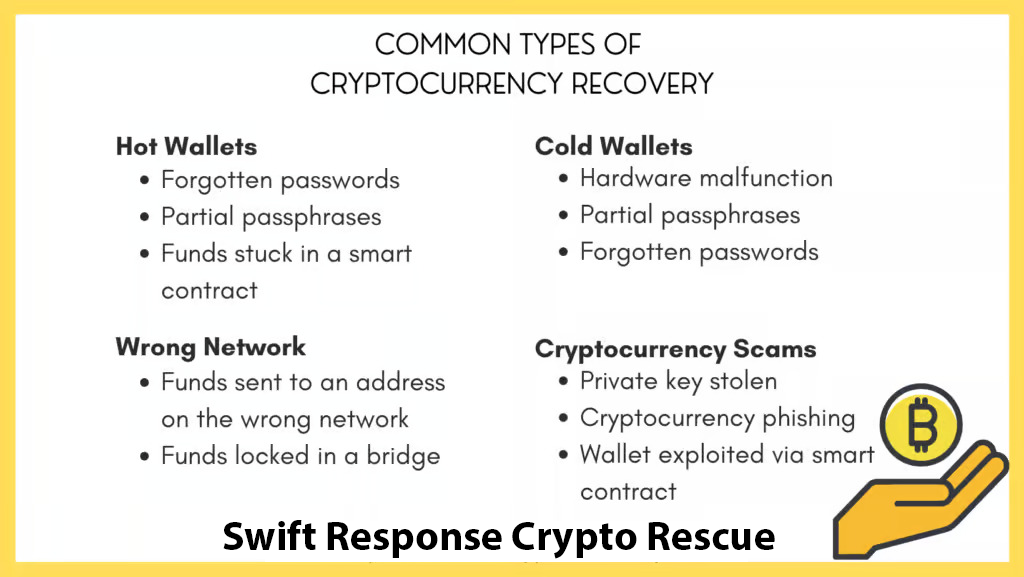Cryptocurrency Recovery Guide: How to Recover Lost, Stolen or Scammed Crypto

Cryptocurrency Recovery Guide: Recover Lost Crypto
Cryptocurrency has revolutionized the financial world, offering users a decentralized and secure way to transact and store value. However, with its benefits come risks, particularly the possibility of losing access to your crypto assets. Whether due to forgotten passwords, phishing attacks, lost private keys, or fraud, losing cryptocurrency can be devastating. This comprehensive cryptocurrency recovery guide outlines strategies and resources to help you recover lost crypto and secure your digital investments in the future.
Common Reasons for Cryptocurrency Loss
-
Forgotten Passwords: Losing access to a digital wallet due to a forgotten password is a common issue, especially with wallets that don’t offer password recovery options.
-
Lost Private Keys or Seed Phrases: Your private key or recovery seed phrase is the most crucial component for accessing your wallet. Without it, recovering your crypto is nearly impossible.
-
Phishing Attacks: Cybercriminals use phishing scams to trick users into revealing wallet credentials or sending crypto to fraudulent addresses.
-
Hacked Wallets or Exchanges: Breaches in wallet security or exchange platforms can lead to significant losses.
-
Sending Crypto to the Wrong Address: Cryptocurrency transactions are irreversible, and sending funds to the wrong address often results in permanent loss.
-
Hardware Malfunctions: Hardware wallets can fail, and without a backup, the stored funds may become inaccessible.
Steps to Recover Lost Cryptocurrency
1. Retrace Your Steps
Begin by identifying how you lost access to your cryptocurrency. This helps determine the best recovery method. For example:
-
If it’s a forgotten password, check for any backup phrases or password hints.
-
If it’s a phishing attack, document all interactions and contact wallet providers immediately.
2. Use Wallet Recovery Options
Most wallet providers have built-in recovery options. Here’s what to do:
-
Non-Custodial Wallets: Search for your recovery seed phrase. If found, use it to restore access on another device.
-
Custodial Wallets/Exchanges: Contact the platform’s customer support and provide necessary verification details.
3. Explore Blockchain Analysis Tools
If you’ve sent crypto to an unknown address, blockchain analysis tools like Chainalysis or Elliptic can trace transactions and identify potential recovery paths. These tools work by mapping blockchain activity and connecting it to known entities.
4. Hire Professional Recovery Services

Specialized cryptocurrency recovery firms can assist in retrieving lost funds. Popular services include:
- Swift Response Crypto: Focused on recovering lost wallet credentials.
-
CipherBlade: Experts in blockchain forensics and cryptocurrency recovery.
Note: Always research the legitimacy of recovery services to avoid scams.
5. Contact Law Enforcement
If your loss results from hacking or fraud, report the incident to law enforcement and provide all evidence, including transaction IDs and communications. Agencies like the FBI’s IC3 handle internet crimes, including cryptocurrency theft.
6. Recovering from Hardware Failures
For hardware wallets like Ledger or Trezor, recovery often depends on your backup seed phrase. If the device is damaged:
-
Contact the manufacturer’s support team.
-
Use recovery tools to extract data from the device’s memory (professional assistance is recommended).
Preventing Future Loss
-
Secure Your Private Keys
-
Store private keys and seed phrases in a safe, offline location.
-
Use hardware wallets for added security.
-
-
Enable Two-Factor Authentication (2FA)
-
Activate 2FA on wallets and exchange accounts to add an extra layer of security.
-
-
Regularly Backup Wallet Data
-
Backup your wallet’s recovery phrase and store it in multiple secure locations.
-
-
Beware of Scams
-
Verify links and emails before clicking. Scammers often mimic trusted entities.
-
-
Test Small Transactions
-
When sending large amounts of crypto, test the transaction with a small amount first to ensure the address is correct.
-
-
Update Wallet and Device Software
-
Regular updates ensure your wallet is protected against new vulnerabilities.
-
Additional Resources
-
Educational Platforms:
-
CoinDesk’s Learn: Offers beginner-friendly guides on cryptocurrency.
-
CryptoCompare: Features resources for managing and securing crypto.
-
-
Online Communities:
-
Reddit’s r/CryptoCurrency: A community for discussions and advice on cryptocurrency.
-
-
Blockchain Explorers:
-
Etherscan: Track Ethereum-based transactions and wallet activity.
-
Blockchain.com Explorer: Supports Bitcoin and other cryptocurrencies.
-
Final Thoughts
Recovering lost cryptocurrency can be challenging, but it’s not always impossible. By retracing your steps, leveraging recovery tools, and seeking professional assistance, you improve your chances of reclaiming your funds. This cryptocurrency recovery guide serves as a roadmap to navigate these challenges effectively.
More importantly, take proactive measures to secure your digital assets and reduce the risk of future loss.
Cryptocurrency is a powerful financial tool, but it requires responsibility and vigilance. Equip yourself with the knowledge and resources outlined in this cryptocurrency recovery guide to navigate the digital financial landscape securely.
Disclaimer: The strategies and resources mentioned in this guide are informational and do not guarantee successful recovery. Always exercise caution when seeking recovery services.
Contact Us Today To begin your Recovery Process

